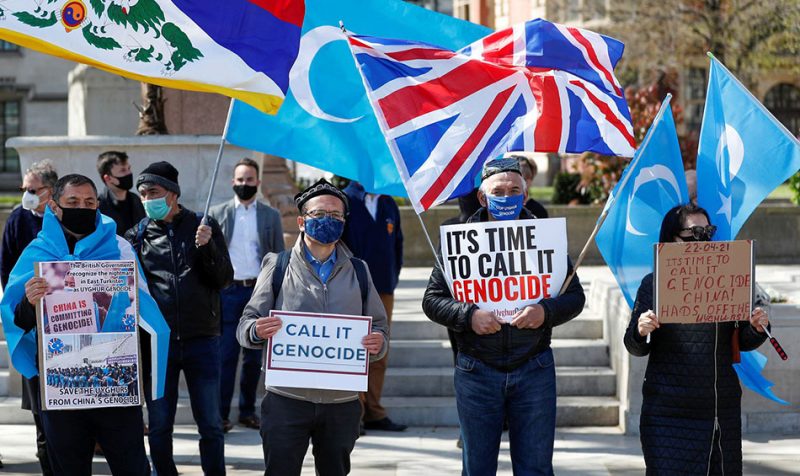Reuters April 23, 20219:36 AM BST

Britain’s parliament called on Wednesday for the government to take action to end what lawmakers described as genocide in China’s Xinjiang region, stepping up pressure on ministers to go further in their criticism of Beijing.
But Prime Minister Boris Johnson’s government again steered clear of declaring genocide over what it says are “industrial-scale” human rights abuses against the mainly Muslim Uighur community in Xinjiang. Ministers say any decision on declaring a genocide is up to the courts.
So far the government has imposed sanctions on some Chinese officials and introduced rules to try to prevent goods linked to the region entering the supply chain, but a majority of lawmakers want ministers to go further.
Lawmakers backed a motion brought by Conservative MP Nusrat Ghani stating Uighurs in Xinjiang were suffering crimes against humanity and genocide, and calling on government to use international law to bring it to an end.
The support for the motion is non-binding, meaning it is up to the government to decide what action, if any, to take next.
The Chinese embassy in the UK condemned the parliament’s move, calling on Britain to take concrete steps to respect China’s core interests and “immediately right its wrong moves”.
“The unwarranted accusation by a handful of British MPs that there is ‘genocide’ in Xinjiang is the most preposterous lie of the century, an outrageous insult and affront to the Chinese people, and a gross breach of international law and the basic norms governing international relations,” the embassy said in a statement dated Friday.
Britain’s minister for Asia, Nigel Adams, again set out to parliament the government’s position that any decision on describing the human rights abuses in Xinjiang as genocide would have to be taken by “competent” courts.
Some lawmakers fear Britain risks falling out of step with allies over China after the Biden administration endorsed a determination by its predecessor that China had committed genocide in Xinjiang.
